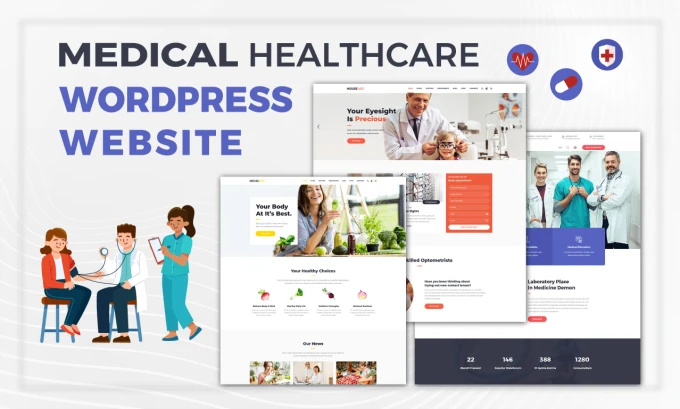Why Need a Website For a Hospital ...?
A website for a hospital serves multiple important purposes, enhancing the facility's accessibility, communication, and overall service quality. Here are some key reasons why a website is essential for a hospital:
Information Accessibility: A website provides patients and their families with easy access to crucial information such as services offered, department details, doctor profiles, visiting hours, and contact information. This accessibility improves user experience and helps in informed decision-making.
Appointment Scheduling: Through a website, patients can conveniently schedule appointments, view available time slots, and choose their preferred doctors. This reduces wait times and streamlines the appointment process, making healthcare more accessible.
Emergency Services Information: Immediate access to emergency service details, including hotlines and procedures, can be life-saving. A website allows for quick dissemination of this vital information.
Healthcare Education: Hospitals can use their website to educate the public on health issues, preventive measures, treatments, and health tips. This not only positions the hospital as a trusted authority in healthcare but also promotes public health awareness.
Patient Portals: Many hospital websites offer patient portals where individuals can access their medical records, lab results, prescription details, and more. This empowers patients to take charge of their health and facilitates better patient-doctor communication.
Feedback and Testimonials: Websites can feature patient testimonials and feedback forms, providing valuable insights for the hospital to improve its services and showcasing positive experiences to prospective patients.
Marketing and Public Relations: A well-designed website serves as a marketing tool, highlighting the hospital's facilities, technologies, specialties, and achievements. It can attract new patients and partnerships, enhancing the hospital's reputation and reach.
Online Services: Many hospital websites offer additional online services such as bill payment, insurance information processing, and pre-admission forms, making administrative procedures more efficient for both patients and the hospital.
Community Engagement: Hospitals can use their websites to announce events, health camps, charity drives, and more, fostering a sense of community and encouraging public participation in health-related activities.
Transparency and Trust: Providing detailed information about the hospital's practices, accreditations, and policies can build trust with patients and the community, showcasing the hospital's commitment to transparency and high standards of care.
In summary, a hospital website is a critical tool that enhances service accessibility, patient engagement, and operational efficiency, while also serving as a platform for education, communication, and marketing.
----------
My Portfolio:- https://www.behance.net/dev_jubair
Get Free Consultation:- https://calendly.com/developerjubair/30min
Hire ME:- https://www.fiverr.com/s/rmmGV0
#YourHealthYourWay
#EHealth
#DigitalWellness
#SmartHealthcare
#AccessHealth
